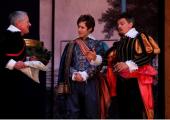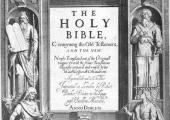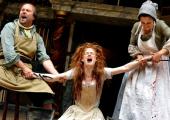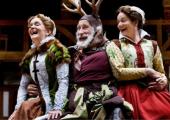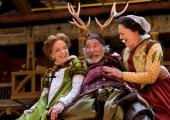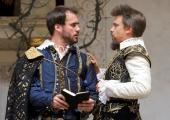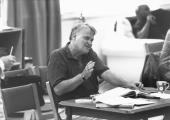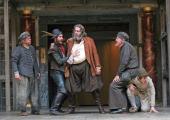Much Ado About Nothing, Shakespeare's Globe
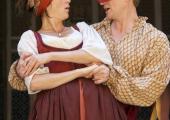
A classic summer comedy joins the Globe's Shakespearean repertoire
Everybody’s talking about Much Ado About Nothing. At dinner tables, the pub and on the Bakerloo Line the only cultural conversation to be overheard having is whether David Tennant and Catherine Tate will be as wonderful as we all want them to be as Shakespeare’s feuding lovers Beatrice and Benedick. Their West End show opens next week, and among all the hype and headlines another production (and it was always going to be the “other production”) has quietly opened down at Bankside – a show with such warmth and knockabout energy that if Tate and Tennant are not very brilliant indeed they may find themselves outpaced.

